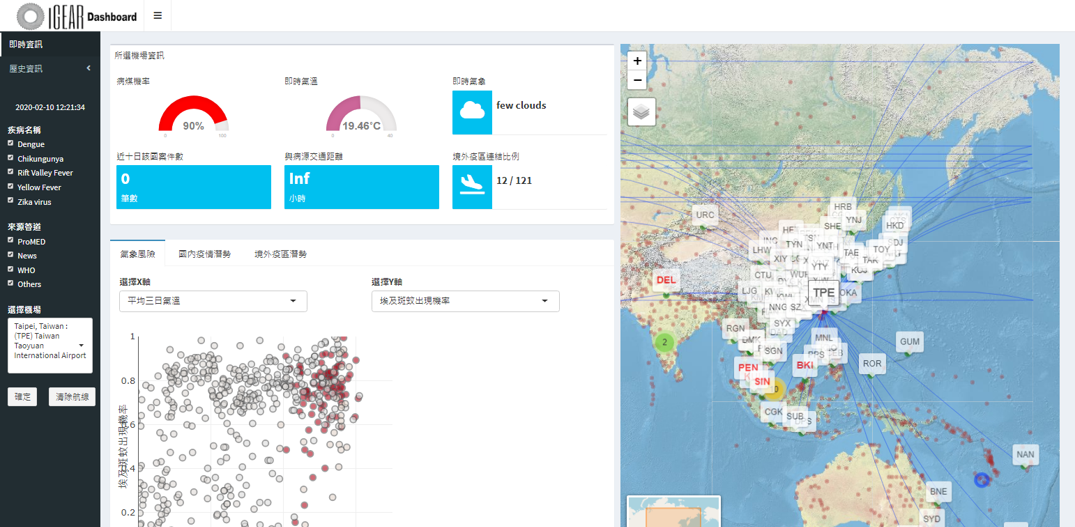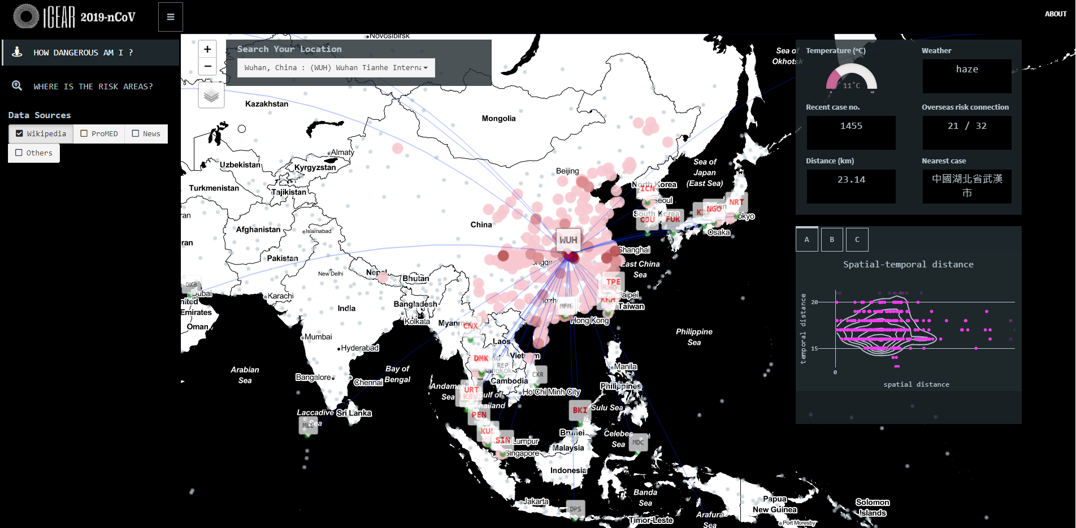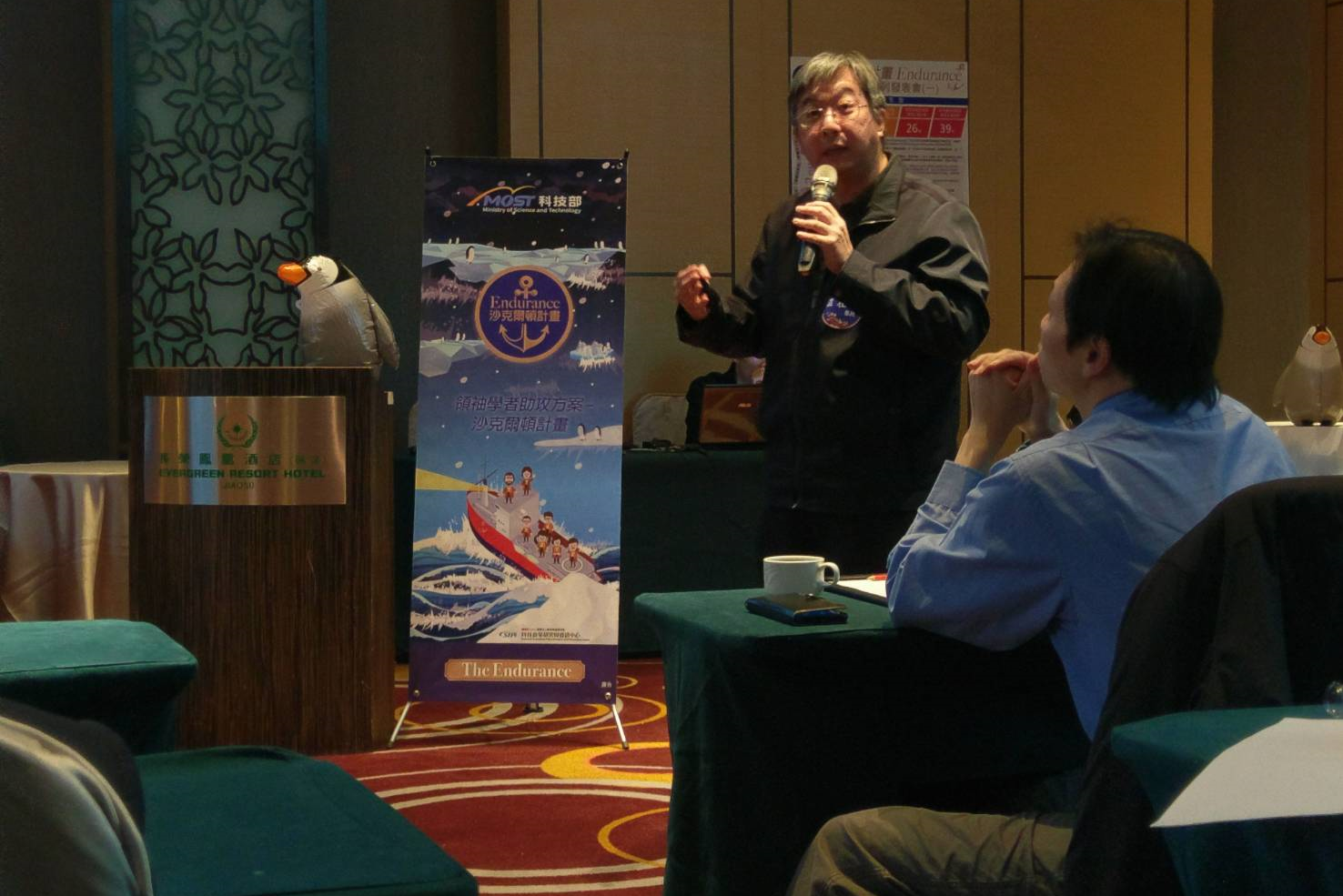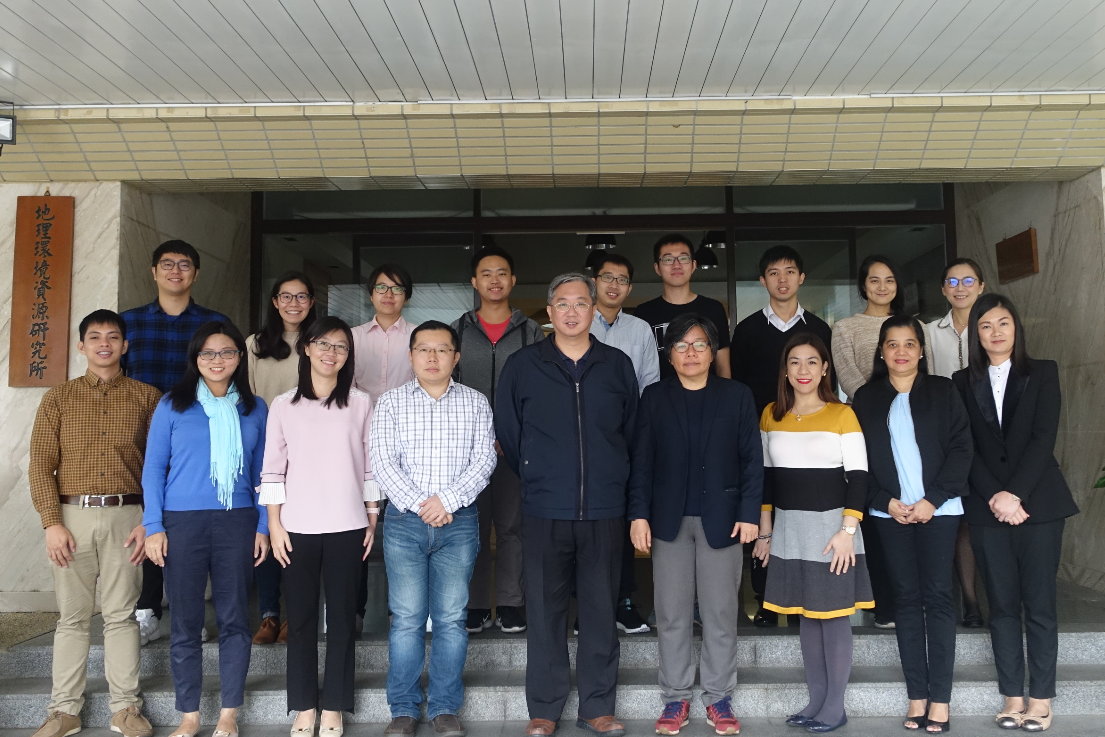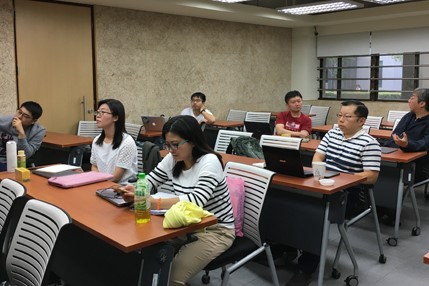By monitoring global-scale human mobility and multilingual social media volumes, this project aims to integrate complex human behavior in the geographic space and cyber networks, and build up a more comprehensive global early warning framework for the international transmission risk of infectious diseases.
We target on severe mosquito-borne diseases, such as dengue fever, Chikungunya Fever and Zika virus for disease control at a global scale. This is a multi-disciplinary project, which includes data collection, models specification and systems and platforms establishment. On data collection, we develop machine-learning-based methods for automatic information acquisition and data classification, crawl web data such as ProMED epidemic reports, and use remote sensing imagery and techniques to extract environmental parameters and risk factors. This project also applies the concept of functional region in human geography to develop a zoning framework for disease control by integrating international transport data and social media data parsed by semantic analysis. The new zoning framework we propose may not only more appropriately reflect the disease importation risk regarding human mobility and regional difference, but also provide better understandings of the spatio-temporal dynamics and spread of infectious diseases due to international traveling.
Under the impact of global warming which causes global expansion and redistribution of vectors, Taiwan, located at the boundary between tropical and subtropical climate zone, has a considerable potential for outbreaks of mosquito-borne diseases. In the meanwhile, Taiwan is also a transport hub in East Asia, having geographic closeness and inseparable economic bonds with Northeast and Southeast Asia countries. This project could provide more in-depth understandings of how overseas epidemics may affect Taiwan and what impact that the domestic disease outbreaks may bring to other countries. We hope to demonstrate a benchmark for modeling and monitoring the global spread of infectious diseases, and provide health authorities with practical guidelines for controls of disease transmission and importation. At last, the early warning framework from Taiwan may promote global public health to a next level and lead the society towards a healthier and more sustainable future.
Under the impact of global warming which causes global expansion and redistribution of vectors, Taiwan, located at the boundary between tropical and subtropical climate zone, has a considerable potential for outbreaks of mosquito-borne diseases. In the meanwhile, Taiwan is also a transport hub in East Asia, having geographic closeness and inseparable economic bonds with Northeast and Southeast Asia countries. This project could provide more in-depth understandings of how overseas epidemics may affect Taiwan and what impact that the domestic disease outbreaks may bring to other countries. We hope to demonstrate a benchmark for modeling and monitoring the global spread of infectious diseases, and provide health authorities with practical guidelines for controls of disease transmission and importation. At last, the early warning framework from Taiwan may promote global public health to a next level and lead the society towards a healthier and more sustainable future.
iGEAR Dashboard
News
January 16-17, 2020
December 26, 2019
November 23, 2019
August 15, 2019

